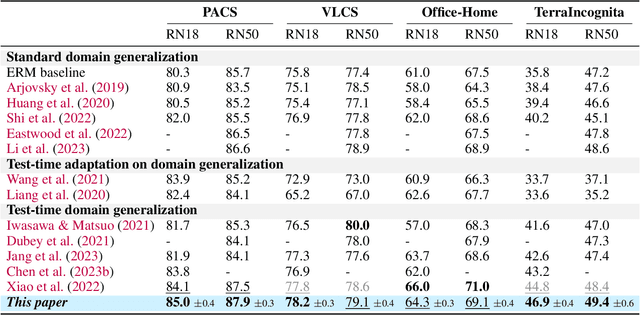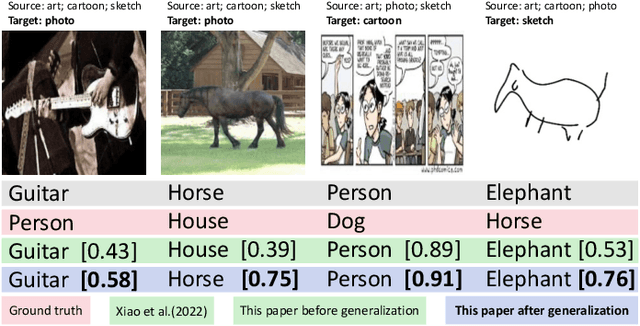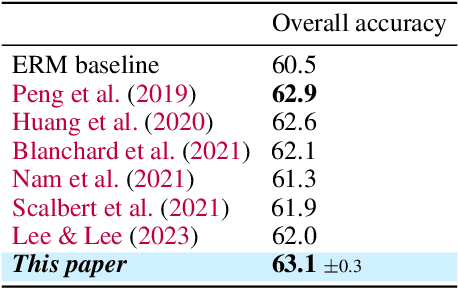Learning Variational Neighbor Labels for Test-Time Domain Generalization
Paper and Code
Jul 08, 2023



This paper strives for domain generalization, where models are trained exclusively on source domains before being deployed at unseen target domains. We follow the strict separation of source training and target testing but exploit the value of the unlabeled target data itself during inference. We make three contributions. First, we propose probabilistic pseudo-labeling of target samples to generalize the source-trained model to the target domain at test time. We formulate the generalization at test time as a variational inference problem by modeling pseudo labels as distributions to consider the uncertainty during generalization and alleviate the misleading signal of inaccurate pseudo labels. Second, we learn variational neighbor labels that incorporate the information of neighboring target samples to generate more robust pseudo labels. Third, to learn the ability to incorporate more representative target information and generate more precise and robust variational neighbor labels, we introduce a meta-generalization stage during training to simulate the generalization procedure. Experiments on six widely-used datasets demonstrate the benefits, abilities, and effectiveness of our proposal.
 Add to Chrome
Add to Chrome Add to Firefox
Add to Firefox Add to Edge
Add to Edge